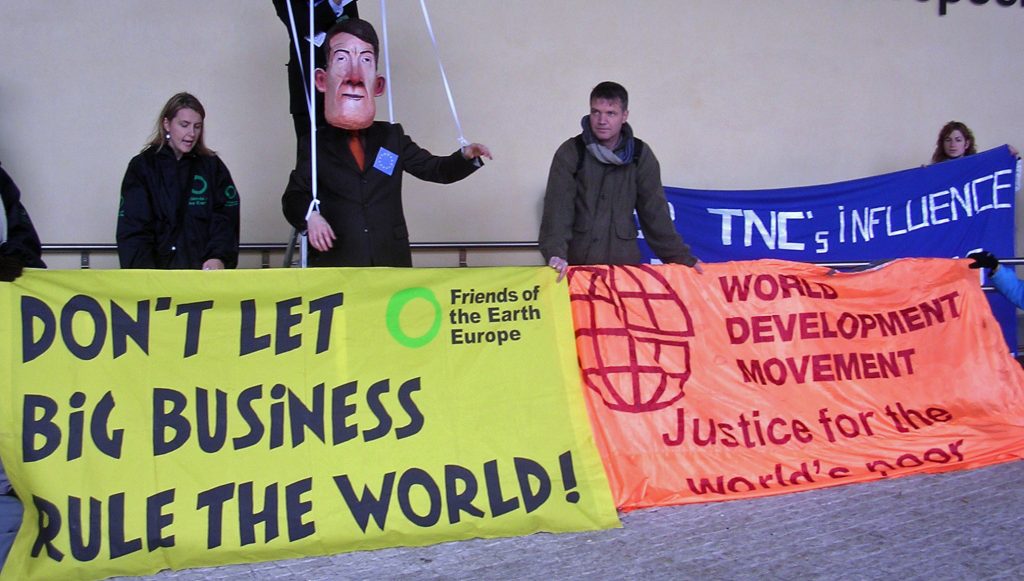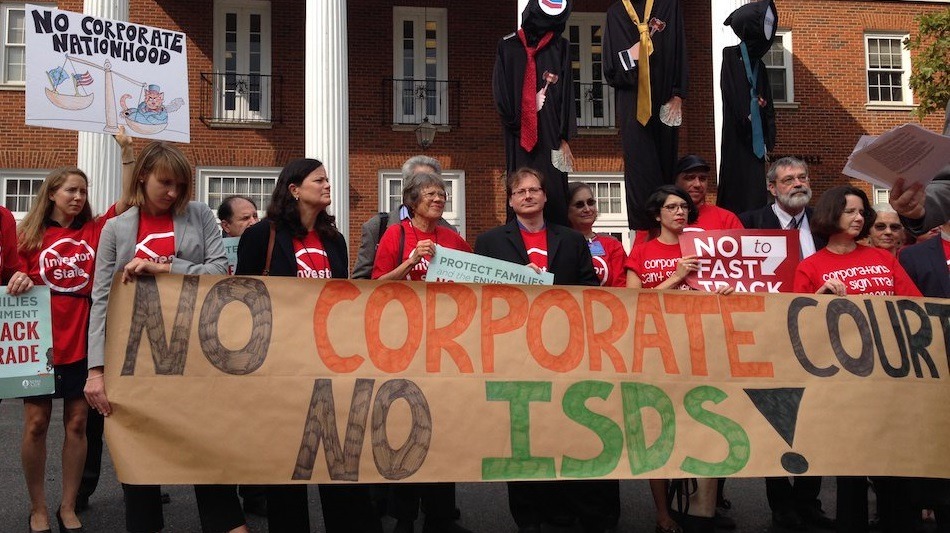Brussels, July 1, 2009 – On the day the European Union is expected to announce the suspension of its new round of free trade negotiations with Central America, Friends of the Earth International calls for an end to the process of free trade negotiations that the EU is promoting in Central America, and recommends a full reconsideration by the EU of its role in the region. [1]
Charly Poppe, trade campaigner at Friends of the Earth Europe stated: “Above any objective of trade expansion, the relations of the EU with the Central American countries and other regions should be based on full realisation and respect for human rights. The cancellation of this round of negotiations is positive, but sadly, the European Commission still envisages a conclusion of the negotiations with the Central American countries this year. Unless the EU fundamentally revises its trade agenda, the Association Agreement under negotiation will only worsen the problems of poverty and social exclusion in Central America.”
Friends of the Earth International recommends:
1) The EU should not negotiate with any government guilty of violations of human rights, and this applies for the regime installed after the coup in Honduras, and also for the cases of Peru and Colombia, where violations of the rights of indigenous people, peasants, unionists and the population in general, are part of everyday life. The main goal of the relations between the EU and the Central American countries should be the realisation and absolute respect for human rights, and thus, the process of free trade negotiations in the framework of the Association Agreement must be stopped. There is strong evidence that they only worsen the internal fractures of Central American societies, favouring some sectors, to the detriment of the popular majority.
2) The EU should also investigate the responsibility of European transnational corporations in these situations of violence and systematic abuses against the least protected populations of Latin America.
3) The EU should acknowledge that its free trade model promotion does not help to strengthen the regional integration of the Central American peoples, nor to reduce poverty and ensure dignified living conditions for its population. This is not what the Central American peoples need in order to build their national sovereignties and democracies. Free trade negotiations promoted by the EU only seek to liberalize completely all economic sectors of the Central American countries, and respond to the interests of the EU in terms of ensuring access to raw materials and significant business opportunities in the area of services, public procurement and intellectual property rights.
4) Friends of the Earth International calls the European Union to undertake a period of specific actions aimed at changing the model that prevails in the relations between the EU and the global south, especially Latin America and Central America.
5) The processes of regional integration in Central America and the Andean region have been severely impacted by these free trade negotiations promoted by the EU. In order to strengthen the integration of the Latin American countries, the ‘divide-and-rule’ tactics used by the EU in its regional FTAs in the last three years, must come to an end.
“The entire free trade model promoted in Central America by the EU with the Association Agreements must be stopped immediately, and its impacts on human rights and the environment must be assessed. Transnational corporations have been strengthened by this model, but not people’s rights. In the case of Honduras, it is evident that the interests to deepen free trade even further are behind the coup d’état, because the corporate sectors have explicitly supported the attack on democracy. The coup is carried out precisely in a moment when Zelaya’s administration was intending to address this free trade model with specific measures,” stated Sebastián Valdomir of Friends of the Earth International
***
NOTE:
[1] More information is contained in the report ‘Global Europe: The tyranny of ‘free trade’, the European way’, available here.






